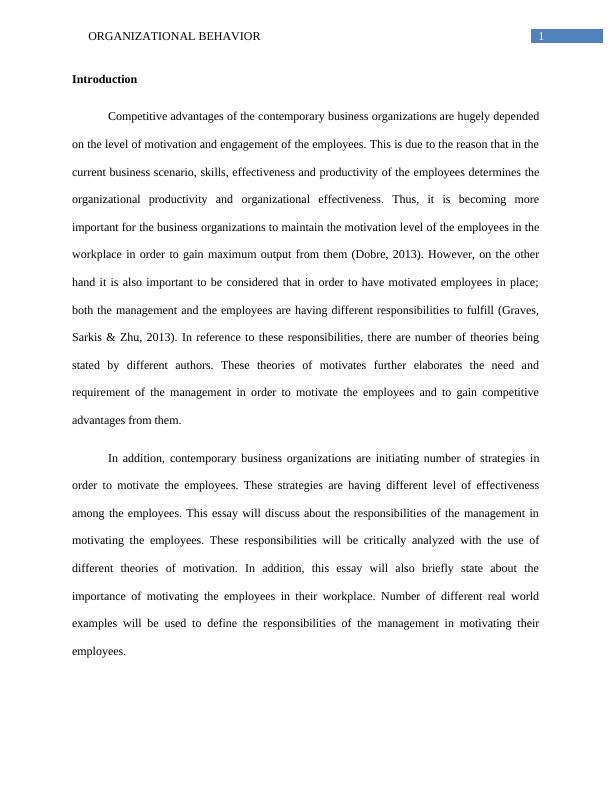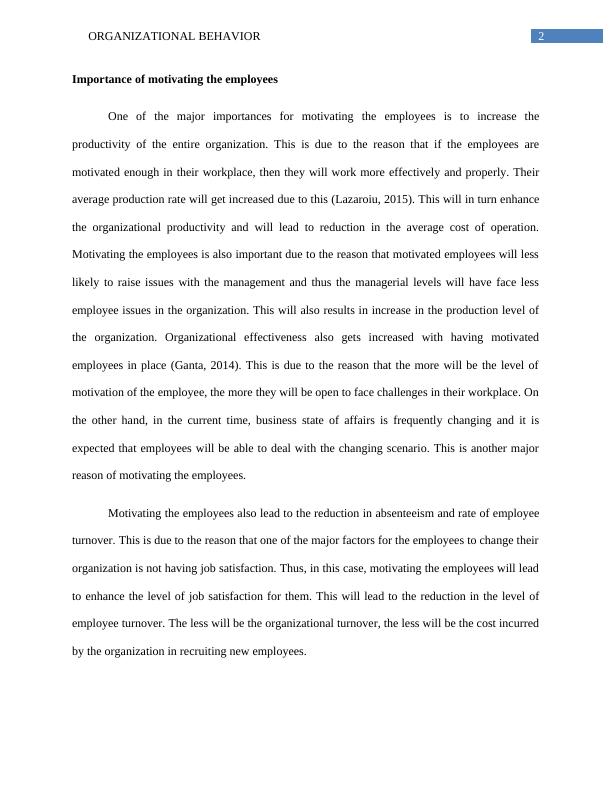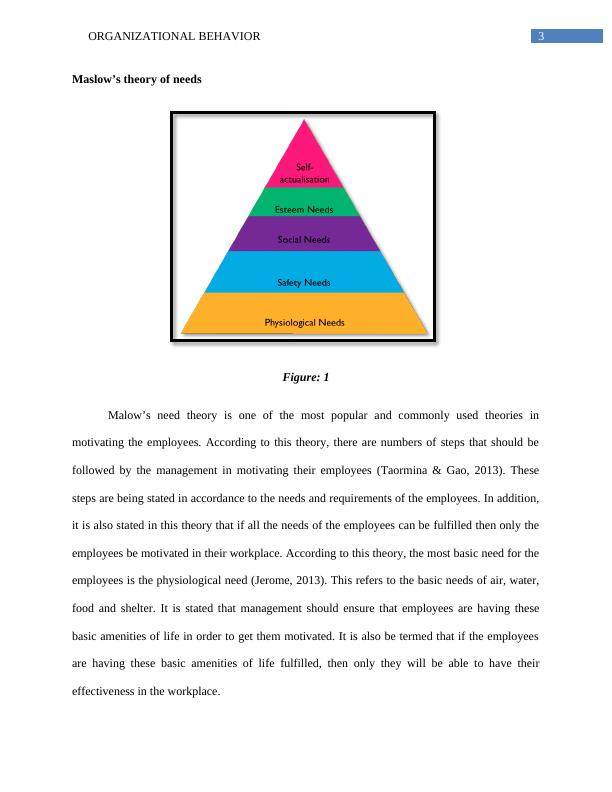Organizational Behavior: Responsibilities of Management in Employee Motivation
12 Pages2900 Words343 Views
Added on 2023-06-10
About This Document
This essay discusses the importance of employee motivation for business organizations and the responsibilities of managers in motivating them. It analyzes different motivation theories and real-world examples of employee motivation strategies used by top multinational companies like Google and Apple.
Organizational Behavior: Responsibilities of Management in Employee Motivation
Added on 2023-06-10
ShareRelated Documents
End of preview
Want to access all the pages? Upload your documents or become a member.
Impacts of Employee Motivation on Organizational Performance and Employee Well Being
|6
|1333
|437
Article on the Organizational Behavior
|6
|1891
|53
Motivational Theories and Employee Engagement
|14
|4082
|266
Organizational behavior – a critical approach
|9
|2008
|282
Relationship between Job Involvement and Job Performance
|8
|2054
|405
HRMM055: Management & Organisational Behaviour
|16
|3665
|135




